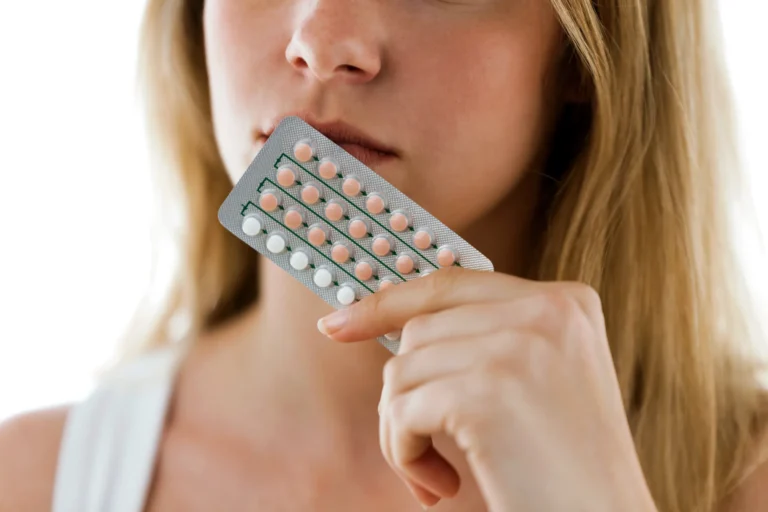If your partner, daughter, or another woman in your life has recently started birth control or switched forms of birth control, and you sense that something is different about her mood or her behavior, it may not be all in your head. Birth control can impact women’s moods and behaviors in several ways.
Mental health
In addition to mood changes and depression being mentioned among the most common side effects on product inserts of hormonal contraceptives, there is growing evidence showing birth control can have mood-altering effects on both girls and women. Large-scale studies have confirmed a link between heightened risk for depression, anxiety, and suicide risk among women on hormonal forms of birth control, with adolescent girls being at the highest risk.
The copper IUD, although it is a popular non-hormonal birth control option, can also cause mood-altering side effects.
Libido and mutual attraction
We also know that birth control can tank some women’s libidos for various reasons. Changes in libido can be due to the synthetic hormones in birth control causing changes in feelings or emotions, but these hormones can also cause physiological changes due to their effects on vaginal tissues (including shrinkage of the clitoris).
Hormonal birth control may also impact mutual attraction, i.e., how attractive your partner is to you, and how attractive you are to your partner. (One study has even suggested that having a partner on birth control may even change men’s perceptions of their own attractiveness.)
Stress and ability to cope
Birth control also impacts the ability of a woman’s body to cope with stress. In fact, women on hormonal contraception do not exhibit the body’s classic response to stress (i.e., elevated levels of the stress hormone, cortisol, courtesy of HPA-axis signaling) in stressful situations. This can lead women to feeling out of touch with healthy stressors, and it can also lead to chronic stress.
Changes in the brain
A 2019 study found that women on oral contraceptives had a 6% smaller hypothalamus (a key structure in the brain) than women who were not on oral contraceptives. (A 6% decrease is no small amount. For comparison, in a patient with Alzheimer’s, the hippocampus may lose 3 to 4% a year.) And while, in the study, women with smaller hypothalamic volume scored no worse in cognitive testing results (which measured verbal learning and memory, executive function, and working memory), they did score higher on anger and depression measures than women with larger hypothalamic volume.
Weight gain, body shape, and eating patterns
There are a few theories behind why some women on birth control may find themselves gaining weight, or see their body shape changing. One theory is that birth control may alter women’s eating patterns, causing them to eat more. This theory is supported by the evolutionary perspective on women’s cycles, and what we know about how birth control works.
Hormonal birth control primarily stops a woman from ovulating (that is, from releasing an egg each month). Rather than “regulating” her cycle, the synthetic hormones in birth control actually make her cycle stop entirely. These hormones put a woman in a perpetual state of the second half of her cycle (as if ovulation already happened) when women are likely to eat more (the luteal phase). Without being balanced out by the first half of her cycle (the ovulatory phase), when women are likely to eat less, this can lead to weight gain over time.
How you can help
If any woman you love (your partner, daughter, sister, or other loved one) has recently started or switched her birth control, and you have a hunch that some of her new moods or behaviors coincide with the change, follow your instinct. You may share information with her about side-effect-free Fertility Awareness Methods (FAMs) which can be used for highly effective family planning, as well as for reproductive health maintenance, diagnosis, and treatment (when used in conjunction with Restorative Reproductive Medicine).
FAMs have as much to offer women of childbearing age who want to plan for or postpone pregnancy, as they do for teenagers looking for relief from heavy, painful, or irregular periods, acne, or other cycle-related issues—all without the mood, brain, body, or behavioral changes that can accompany birth control. Many women (and teens) find that FAMs help them feel more in tune with their bodies, empowering them to be better advocates for their health and wellbeing.
This page was last updated on May 16, 2024.
-

Libido in the Time of COVID-19
By Mary Rose Somarriba • May 9, 2020With all the other concerns people have during the COVID-19 pandemic, it would seem that libido would be… -

When Libido Issues Are Not All In Your Head
By Grace Emily Stark • February 6, 2019A few years ago, when I worked for the Center for Drug Evaluation and Research at the FDA,… -

How Fertility Awareness Can Help with Healthy Libido
By Cassondra Moriarty • November 7, 2018Low libido can be a bit of an embarrassing topic for many, but it’s actually a pretty common… -

What is hypoactive sexual desire disorder (HSDD) and how do you know you have it?
By Kristen Curran • March 14, 2024What’s the difference between FSD and HSDD? -

Will sex change after getting off the Pill? An honest answer from someone who’s been there
By Cassondra Moriarty • April 13, 2022One of the things people worry about when getting off of the Pill and starting a Fertility Awareness… -

Is the monthly birth control ‘pill pause’ harmful to women’s mental health?
By Anne Marie Williams, RN, BSN • December 13, 2023Some researchers say the pill pause should be eliminated altogether. But are they right? -

Concerned about postpartum mental health and milk supply? Think twice about your birth control choice (especially LARCs)
By Cassondra Moriarty • October 1, 2021You just had a baby. And maybe, you’re thinking “I am definitely not ready for another one!” (These… -

Yes, Birth Control Affects Mental Health. Here’s Why It Isn’t Addressed
By Mary Rose Somarriba • April 30, 2021“I had severe depression with suicidal thoughts. I had no libido and I got severe fatigue. I took… -

The Benefits of Charting for Your Mental Health
By Julia Hogan-Werner, LCPC • February 26, 2020Fertility Awareness-Based Methods (FABM) are an empowering way to track your menstrual cycle and manage your fertility, but… -

The Powerful Link Between Fertility Awareness and Mental Health
By Julia Hogan-Werner, LCPC • April 25, 2020As a psychotherapist, you wouldn’t think I’d spend much time talking about women’s reproductive health. Instead, you might…




